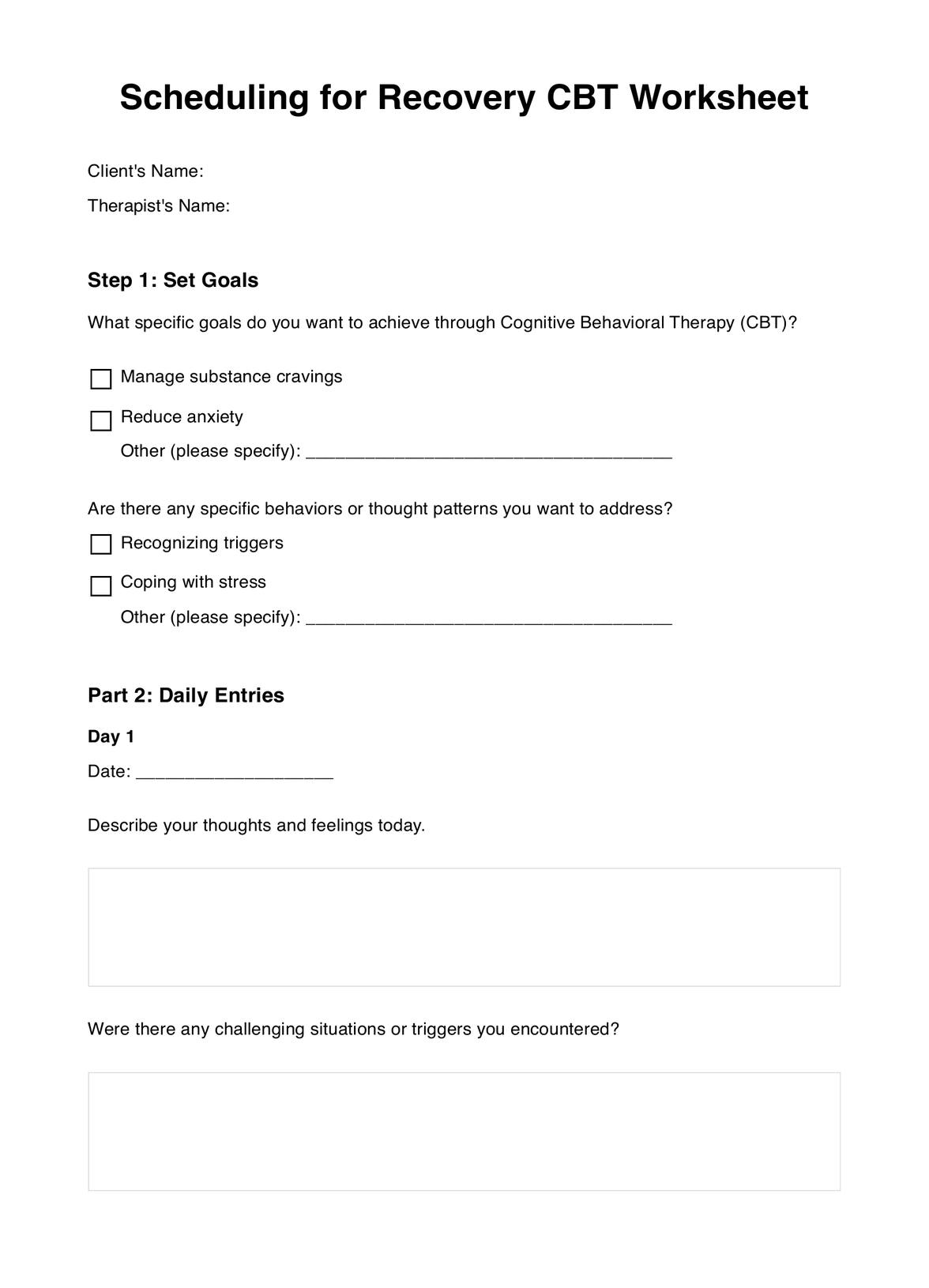The time required varies by individual. Daily entries typically take minutes, but the worksheet's benefits accumulate over time.

Scheduling for Recovery CBT Worksheet
Learn about how to use the Scheduling for Recovery CBT Worksheet and its benefits. Download the free PDF for easy access when doing cognitive behavioral therapy.
Use Template
Scheduling for Recovery CBT Worksheet Template
Commonly asked questions
This worksheet helps individuals undergoing CBT track their progress, identify patterns, and communicate effectively with their therapist.
It is best used when undergoing Cognitive Behavioral Therapy, especially for substance abuse.
EHR and practice management software
Get started for free
*No credit card required
Free
$0/usd
Unlimited clients
Telehealth
1GB of storage
Client portal text
Automated billing and online payments











